Students, parents, and educators across Nigeria have decried the significant delay in the conduct of the English Language Paper 2 in the ongoing West African Senior School Certificate Examination (WASSCE) for School Candidates, 2025. Reports from multiple states revealed that candidates were forced to sit for the compulsory paper late into the night, with some schools starting the exam as late as 9:00 p.m.
This development has sparked widespread concern and criticism, especially in the South West, North Central, and South-South regions, where students reportedly arrived home well past 10:00 p.m. due to the delay.
“My son just returned home around 8:00 p.m. after writing the English exam. I learnt that in Ijebu Jesa, Osun State, the question papers were just being given out to students at past 9:00 p.m. O ga o,” said Babatunde Ishamuko, a veteran Mass Communication lecturer and former staff at Osun State Polytechnic, Iree.
He was not alone in his observation.
Another lecturer, commenting anonymously, added: “It’s not restricted to the South West alone. Kwara, a North Central state, experienced the same. A colleague in Edo State who teaches at a secondary school didn’t get home until about 11:30 p.m. because of the delay.”
Unconfirmed Reports of Exam Leakage
Rumours of leaked exam questions have compounded the controversy. Several commentators speculated that WAEC may have taken precautionary measures following a suspected leak of the English Language Paper 2, originally scheduled for 2:00 p.m. on Wednesday.
“The question paper has been in circulation since yesterday,” claimed Babalola Dare, a commentator. “Maybe this is the reason behind the delay. But the question is, must they write the exam today at such a late hour?”
While these claims remain unverified, many argue that a temporary postponement would have been a more humane and responsible alternative.
WAEC Responds: Security and Integrity to Blame
In a press release dated 28 May 2025, the West African Examinations Council (WAEC) acknowledged the challenges, confirming the delay in the conduct of the English Language examination.
> “While maintaining the integrity and security of our examination, we faced considerable challenges primarily due to our major aim of preventing leakage of any paper,” the statement reads.
Signed by Moyosola Adesina, Acting Head of Public Affairs, WAEC admitted that although their security measures successfully prevented leakage, they inadvertently affected the “timeliness and seamless conduct of the examination.”
WAEC attributed the disruption to “logistical hurdles, security concerns and sociocultural factors,” and assured that it is working closely with security agencies to prevent a recurrence. The Council also offered an apology for any inconvenience caused and expressed gratitude for the understanding of stakeholders.
However, many feel the apology falls short in addressing the practical consequences of the delay.
“The education sector needs total attention in Nigeria,” said education advocate Yemi Yusuf. “How will a student writing exams under tension, at this time of night, be able to concentrate and write well? People who should lose their jobs over this irregularity are many. But this is Nigeria where the government doesn’t give a damn.”
Emotional Toll and Safety Concerns
Perhaps the most heart-wrenching concern is the safety and mental wellbeing of students affected by the irregular schedule. Many had to travel long distances in the dark, under tense and unfamiliar conditions.
“I’m not doubting that exam malpractice is a major issue here, and kudos to whoever’s working to stop it,” wrote Onisuru Gbolahan, a concerned citizen, in a viral post on X (formerly Twitter). “But honestly, I’m shocked WAEC let their officials conduct exams this late.”
“I saw students at the public school near my place who travelled over 10 km just to get here. How are they supposed to get home this time of night? If anything happens to them, will WAEC take responsibility?” he asked, concluding with hashtags such as #WAEC2025 and #ExamSafety.
Others shared similar fears, pointing out that many schools lacked lighting infrastructure, and students had to write under torches or mobile phone lights. Teachers, many of whom had to supervise late into the night, have also complained about exhaustion, disorganisation, and a lack of communication from WAEC.
The Bigger Picture: Systemic Rot or Necessary Evil?
For decades, WAEC has faced the difficult task of balancing exam security with equitable access and smooth operations. Nigeria’s high exam malpractice rates have led to severe scrutiny of public examinations, with question paper leaks often resulting in last-minute changes or cancellations.
However, critics argue that WAEC’s response mechanism, while well-intentioned, lacks a child-centred approach.
“You cannot protect the exam and lose the candidate,” said an anonymous school principal in Osun. “Security is important, yes, but the welfare of these children should never be compromised.”
On the other hand, a few voices have called for patience and reform rather than outrage.
“If indeed WAEC took action because of a leak, then the delay might have been necessary,” said a teacher in Lagos. “But such decisions should be better planned and communicated. This could have been a rescheduled paper.”
What Next?
As the dust settles, many are calling on the Federal Ministry of Education and relevant state authorities to probe the events of 28 May 2025. Advocates have also asked that WAEC publicly disclose whether there was an actual security breach and what steps are being taken to address the systemic lapses.
Parents, civil society organisations, and education unions are expected to issue statements in the coming days. Meanwhile, WAEC has not indicated whether it will adjust subsequent exam timetables to accommodate schools and students affected by the delay.
For thousands of students who wrote a critical exam under stress and at odd hours, the experience will not be easily forgotten.
More pictures



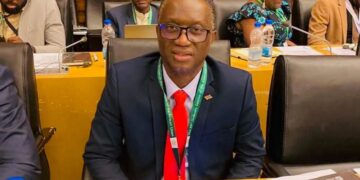


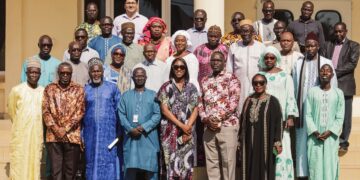
































































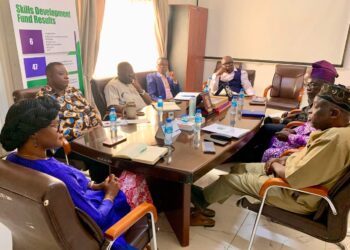


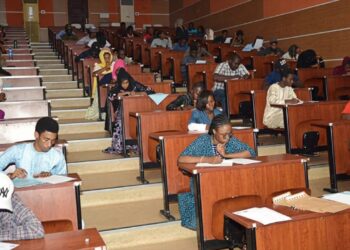
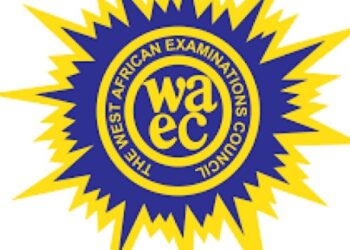











 EduTimes Africa, a product of Education Times Africa, is a magazine publication that aims to lend its support to close the yawning gap in Africa's educational development.
EduTimes Africa, a product of Education Times Africa, is a magazine publication that aims to lend its support to close the yawning gap in Africa's educational development.